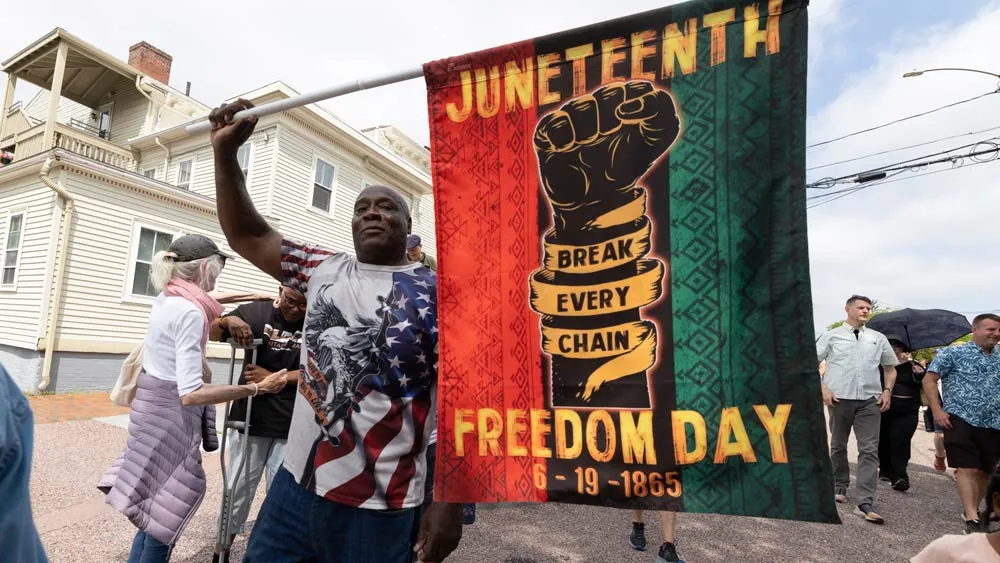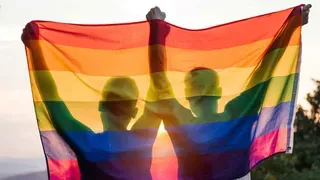November 30, 2011
Let's Talk HIV: Reflections on World AIDS Day
Earl Plante READ TIME: 4 MIN.
I am deeply honored to have the opportunity to blog to you all on World AIDS Day, which was first designated by the World Health Organization in 1988. This year's theme is "Getting to Zero: Zero New HIV Infections. Zero discrimination. Zero AIDS-related deaths." This is an inspirational goal that we all can support!
I would like to honor the strength, courage, and endurance of all people living with HIV/AIDS by sharing some reflections. Their strength is a testament to our progress in developing powerful anti-HIV drugs, and a beacon of hope in our fight to one day end this deadly disease.
Today, we are at critical time in the history of AIDS, but it is dangerously perilous as well. Research has given us some spectacular advances. We now have extraordinary tools at our disposal, including a microbicide that reduces a women's risk of acquiring H.I.V. and a pill that helps prevent its acquisition in gay men.
When you combine these advances with what we know about the efficacy of condoms, of male circumcision, and of providing clean syringes to addicts for preventing transmission of the disease, we are radically changing the face of the pandemic. But it takes money to efficiently use these tools and begin the difficult process of truly ending AIDS.
A colleague from amfAR recently stated that if one person has AIDS it's a tragedy, but when more than 33 million are infected globally it's just a statistic. For me the epidemic is personal; it's not some abstract concept. I've lost too many friends to AIDS. I remain cautiously optimistic; unfortunately there are some storm clouds on the horizon...
The Global Fund to Fight AIDS, Tuberculosis, and Malaria recently decided to institute a two-year moratorium on new grants, saying that the economic downturn was preventing it from expanding its services. The Geneva-based group supports treatment and prevention efforts in more than 100 countries but "cannot at the moment encourage in good faith and expansion of these programs," said Christoph Benn, the fund's director of external relations.
The decision by the fund's 20-member board comes as advocates from across the globe are calling for greater spending on AIDS treatment in the countries most affected by the disease, particularly in sub-Saharan Africa, and as the financial crisis casts a potential pall over the organization's funding, which comes primarily from industrialized Western countries.
The fund needs $7 billion to pay for grants already awarded and has pledges to cover those, but this ominous pullback has cast a foreboding shadow across the funding universe, both in the United States, and abroad.
Collectively, with the Global Fund standing still, the 2015 goal to "end AIDS" will be much more elusive and difficult to achieve. The Global Fund has dispensed about $15 billion since its creation in 2002, including $2.8 billion this year. Nearly all of its money comes from Western industrialized countries, with the United States by far the largest donor. The money is distributed in competitive grants to health ministries and charities in needy countries. The fund is also searching for a new general manager to work with the executive director after a review process in March of this year found "grave misuse of funds" in four countries.
I think there is a huge consensus of agreement across countries worldwide that we need to live more within our means, while at the same time better scrutinizing monetary disbursements made to public charities. But, we should never, ever attempt to balance our budgets at the expense of some of our wisest global investments -- those made in foreign aid to support global health activities which will curtail suffering and decrease new HIV infections from the most vulnerable amongst us.
It should be clear that these sort of shortsighted rollout announcements send exactly the wrong message at the worst possible time; ironically, these kinds of developments are very troubling when there are so many opportunities tantalizingly in reach that might truly end AIDS within our lifetime.
As we collectively pause to reflect on 30 years of living with the HIV/AIDS plague in our midst, please re-commit to supporting our international AIDS programs that give us proof and the needed scientific insights for which we need to lobby -- and deliver -- better overall care to those living with HIV.
And let us strive to live our lives with more integrity, honesty and gratitude overall; believe me, living with grace is probably the most selfish thing you can do. In the moments when I am bathed in gratitude, for a caring gesture or a spectacular autumn morning, I feel truly phenomenal.
With that in mind, here are some humble suggestions for activities to get more involved on World AIDS Day, and beyond:
* Participate in a Bake Aware -- download the Bake Aware fundraising pack.
* Host a local event to observe the HIV/AIDS Awareness Days.
* Take individual action by being tested for HIV or practice safer methods to prevent HIV advises the U.S. Department of Health and Human Services.
* Attend an Observe Day With(Out) Art, increasing public awareness through visual arts, because "AIDS is forever" according to Visual AIDS.
Earl is the Development Director of the Latino Commission on AIDS (the Commission). Earl attended Dartmouth College. Mr. Plante has worked his entire professional life as a passionate advocate for social and economic justice, which is fundamental to combating societal barriers of prejudice and discrimination in our various communities through public education, advocacy, and increased visibility. His passion for this progressive work stems from his belief in the power of grassroots organizing to mobilize and educate people to make positive changes in public policy; Earl ultimately envisions a world where all individuals are fully empowered to participate safely, openly, and honestly in family, faith, and community regardless of race, gender-identity, or sexual orientation.






